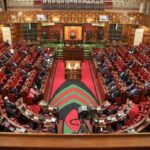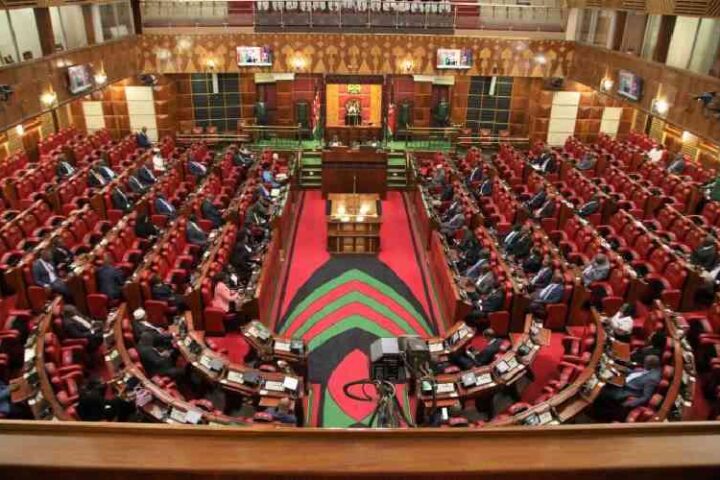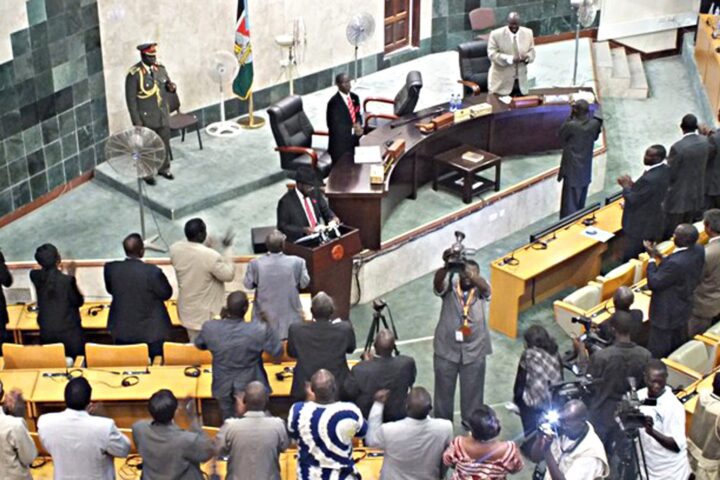The untold story of Pauline Waithira, popularly known as Mama Mboga, is a sad tale of political betrayal and lies.
For years, she has been struggling to make ends meet, running a small vegetable stall by the roadside to earn a living. Living in poverty and struggling to make ends meet, she was swept up by William Ruto’s presidential bid in 2022. He promised her and other Kenyans that his bottom-up economic approach would lift ordinary people out of poverty.
She was ferried to the Bomas of Kenya as Ruto submitted his credentials to the Independent Electoral and Boundaries Commission for clearance to contest. She became the face of Ruto’s campaign, illustrating how his approach would help people like her. On 23 May, Waithira was a speaker at the UDA’s bottom-up model town hall meeting at the Jumuia Conference Centre in Kiambu, where she won the hearts of many people with her oratory skills.
But soon after the elections, Waithira realised that she had been duped. The powerful people she was dining with then did not pick up her calls, and she was left to fend for herself. Despite being used to market the UDA party, she is still living in poverty. Her vegetable stall provides just enough income to pay for basic needs like food, housing, and healthcare. She feels used and betrayed by those who promised to change her life.
The sad truth is that Waithira’s experience is all too common in Kenyan politics. The country was founded on a system of patronage, where politicians use their power to reward their supporters and punish their enemies. Political parties are formed and reformed with alarming frequency, and alliances are quickly made and broken. The result is a political landscape that is chaotic, unpredictable and dishonest.
The events that unfolded after the elections were not unexpected. Betrayal and political backstabbing are commonplace in Kenyan politics. What was surprising was the level of deceit and betrayal that Waithira experienced. She trusted Ruto and the UDA party, and they let her down. Her story is an example of how ordinary Kenyans are used as pawns in the political game, and their suffering is ignored or exploited for political gain.
The truth is that the political system is rigged against people like Waithira. The people in power care more about their own interests than the interests of ordinary citizens. The result is that the country is plagued by corruption, inequality, and poverty. Until the political system is overhauled, people like Waithira will continue to suffer, and the country will remain stuck in a cycle of poverty and despair.
“I am very angry with politicians who used me for political gain during campaigns and have now abandoned me,” Waithira exclaimed in frustration. Her story is not unique. Many ordinary citizens have fallen victim to the empty promises and false hope given to them by politicians during the election periods.
Waithira, a mother of three, was used as a symbol of how the poor would benefit from Ruto’s proposed bottom-up approach to governance. She appeared in rallies and on campaign posters, hoping that her participation would bring about real change in her life and the lives of those around her.
However, when the dust settled and Ruto and his team emerged victorious, Waithira’s story took a different turn. Despite the promises made to her, she was left to fend for herself and her family. She was not even invited to the inauguration ceremony, leaving her with a feeling of indignation and betrayal.
But Waithira is not alone in feeling cheated. Mwalimu Macharia, a Kikuyu businessman who also voted for Ruto, expressed similar sentiments. He believed that Ruto’s approach to governance would stimulate the economy and create job opportunities for the youth.
However, Macharia’s expectations were not met, and he was left disillusioned with the direction the country was taking. He now regrets his vote for the United Democratic Alliance and Ruto, and wishes that he had looked at the bigger picture rather than focusing solely on his personal interests.
The stories of Waithira and Macharia are not isolated cases. The promises made by politicians during campaigns are often too good to be true and are tailored to meet specific voting groups’ needs. As a result, ordinary citizens like Waithira and Macharia become pawns used for political gain, with little regard for their wellbeing and livelihoods.
The political class’s failure to deliver on their promises has created a cycle of distrust, apathy, and voter fatigue. This is evident in the declining voter turnout during subsequent election periods and the growing number of people who opt-out of the political process altogether.
The lack of political will to address the real issues affecting citizens and the constant bickering and finger-pointing among politicians have contributed to the disillusionment felt by many Kenyans. It is imperative that politicians focus on delivering on their promises and work towards addressing the issues that affect ordinary citizens.
As we head into the next election cycle, there is a need for politicians to prioritise the needs of the people, build trust, and work towards creating a society that works for everyone, not just a select few.





























